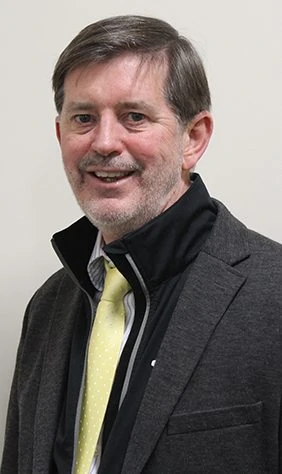Back
Criminal and Juvenile Justice
Boots on the Ground: Advancing Social Justice & Policy Through Field Education
Boots on the Ground: Advancing Social Justice & Policy Through Field Education
Saturday, November 12, 2022
10:45 AM – 11:45 AM
Location: Palos Verde B

Isabel Logan, Ed.D., LCSW
Assistant Professor
Eastern Connecticut State University
Willimantic, Connecticut, United States
Robert Madden, LCSW, JD
Professor
University of Saint Joseph, Connecticut, United States
Main Presenter(s)
Co-Presenter(s)
Overview: This workshop provides a peek into the Social Work and Law Enforcement Project. The Project began as a collaboration between Eastern Connecticut State University's Social Work Program and the Willimantic Police Department. Through the Project, social work interns advance social justice and policy by helping police meet legislative mandates.Proposal text: This workshop will report on the experience of one social work program to develop an internship program collaboratively with the police department in their host city. The mutually beneficial collaboration began when the two disciplines joined forces to meet Social Work Field Education's demands and CT Legislative mandates on Police departments following the death of George Floyd at the hands of a police officer. The goal was to maximize student learning through the exploratory field placement in the police departments, allowing social work interns to advance social justice and policy by helping the police department meet legislative mandates. The collaboration led to the development of the Police Social Work Integrative Model, roles of police social workers, ethical guidelines, and specialized supervision and training to prepare students and social workers to succeed in police social work internships and employment discussed in the workshop. The partnership has become the SWLE Project and now includes eight schools of social work and a growing number of police departments, all training under the same model.
The SWLE Project allows BSW & MSW students to use social work knowledge, values, and skills in the police department across the micro, mezzo, and macro level. Both Police Social Work Interns and police officers are immersed in sharing meals, supervision, training, and ride-a-longs with five goals:
Provide social work students with the opportunity to apply theory to practice.
Merge the two professions.
Bridge the divide between community and police.
Meet legislative mandate.
Carve out the role of police social workers in Connecticut.
Students serve as liaisons between community groups, providers, and individuals, assist with referrals and provide client follow-up.
Police social work (PSW) falls under the Forensic Social Work (FSW) umbrella. Hence, you can't mention PSW without understanding its roots in Forensic Social Work. Barker (2003) defines FSW as "…the law, legal issues, and litigation in both criminal and civil, including issues in child welfare, custody of children, divorce, juvenile delinquency, nonsupport relatives' responsibility, welfare rights, mandated treatment, and legal competency" (pg. 166). In the last three decades, the role of PSW's continues to emerge and fade depending on the American climate's socio/cultural/economic/ political environment, predominately revolving around crisis issues of equality, justice, and policy. To sustain the much-needed role of police social work, Roberts (1976) calls for social work education to specialize training for police social work. The opportunity to develop the area of police social work has come again, and this time we must not let it pass. This workshop will describe the Social Work Integrative Practice model, identify critical topics in police social work intern supervision and training, and provide ethical guidelines specific to police social work.
References
Barker, R. L. (2003). The social work dictionary (2nd ed.). Washington, DC: NASW Press.
Roberts, A. (1976, July). Police social work: A history. Social Work, 294-299.
The SWLE Project allows BSW & MSW students to use social work knowledge, values, and skills in the police department across the micro, mezzo, and macro level. Both Police Social Work Interns and police officers are immersed in sharing meals, supervision, training, and ride-a-longs with five goals:
Provide social work students with the opportunity to apply theory to practice.
Merge the two professions.
Bridge the divide between community and police.
Meet legislative mandate.
Carve out the role of police social workers in Connecticut.
Students serve as liaisons between community groups, providers, and individuals, assist with referrals and provide client follow-up.
Police social work (PSW) falls under the Forensic Social Work (FSW) umbrella. Hence, you can't mention PSW without understanding its roots in Forensic Social Work. Barker (2003) defines FSW as "…the law, legal issues, and litigation in both criminal and civil, including issues in child welfare, custody of children, divorce, juvenile delinquency, nonsupport relatives' responsibility, welfare rights, mandated treatment, and legal competency" (pg. 166). In the last three decades, the role of PSW's continues to emerge and fade depending on the American climate's socio/cultural/economic/ political environment, predominately revolving around crisis issues of equality, justice, and policy. To sustain the much-needed role of police social work, Roberts (1976) calls for social work education to specialize training for police social work. The opportunity to develop the area of police social work has come again, and this time we must not let it pass. This workshop will describe the Social Work Integrative Practice model, identify critical topics in police social work intern supervision and training, and provide ethical guidelines specific to police social work.
References
Barker, R. L. (2003). The social work dictionary (2nd ed.). Washington, DC: NASW Press.
Roberts, A. (1976, July). Police social work: A history. Social Work, 294-299.
Learning Objectives:
- Describe the Police Social Work Integrative Practice Model
- Identify critical topics in the supervision and training
- Learn about ethical guidelines specific to police social work
